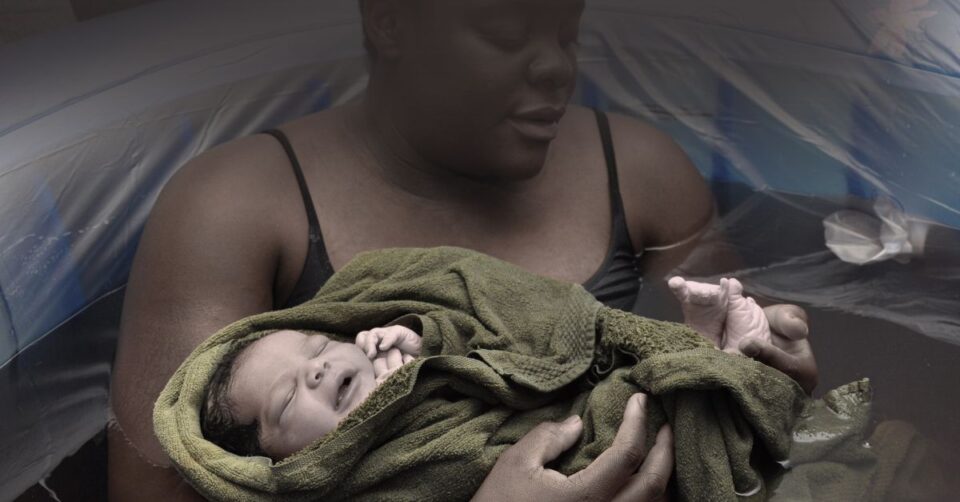66% of Trusts in the UK restricted or suspended their home birth services between October 2023 and November 2024, according to an investigation by the maternity rights charity Birthrights. This shortage leaves women and birthing people who want a home birth feeling like they only have two choices: opt for an undesired hospital birth or give birth at home unassisted and without medical care. Birthrights’ co-CEOs Janaki Mahadevan and Shanthi Gunesekera explain the concerns.
Since September 2024, the largest proportion of enquiries to our information and support service have related to difficulty accessing home births.
We wanted to get a better understanding of the scale of the problem, so we conducted an in-depth investigation into the state of home birth services, resulting in the report: ‘Access Denied: Restrictions to Home Births in the UK’.
We sent Freedom of Information (FOI) requests to all 145 NHS Trusts offering maternity services across the UK, created surveys for women and birthing people and those working in the maternity space, and engaged with community groups and other healthcare professionals.
This enabled us to gather enough information on 119 Trusts – two thirds (66%) were found to have either had service suspensions, strict restrictions, or frequent interruptions to home birth provision in the 12 months between October 2023 and November 2024.
This confirmed our concerns that there is widespread unreliability and patchy provision of home birth services.
Our research also found:
- blanket policies on who can access home birth as an option, including local thresholds and guidelines on factors such as Body Mass Index (BMI), predicted weight of baby and gestational diabetes;
- restrictions on when and where home birth services are available, including people being told access is not possible or restricted in the evenings or weekends;
- a widespread lack of adequate training and opportunities for staff to enable home births to be supported;
- Poor communication with restrictions and suspensions often not effectively communicated to women and birthing people during the antenatal period.
Common themes which came up as reasons why Trusts were unable to provide home birth as a meaningful choice for women and birthing people related to staffing pressures, lack of emergency plans to ensure business continuity, inadequate service planning and challenges in providing across a full geographic area. Some Trusts cited lack of demand as a reason for dismantling dedicated home birth teams, but women and birthing people told us that they are often not even informed about home birth as an option or are actively discouraged from choosing this option, which has an obvious impact on demand.
Our research revealed:
- Women and birthing people who want a home birth often feel ignored and unsupported, adding to a growing mistrust in the maternity system.
- Many women and birthing people describe feeling unassisted birth is the only viable option after being denied access to midwife-supported home birth.
- Women and birthing people feel they cannot rely on home birth services being available, creating anxiety and stress throughout their pregnancies.
- Women and birthing people describe feeling empowered when they have secured their right to a home birth but exhausted at having to fight so hard to access their rights.
We know, too, that there are greater barriers to home birth for those from marginalised and minoritised communities. Restrictive local policies and clinical pathways in some areas lock Black and Brown women out of home birth altogether, while hospital environments are often not set up to accommodate those with additional needs.
Women and birthing people have the right to make their own choices about the circumstances of giving birth, and the right not to be discriminated against when making those decisions.
All NHS Trusts and ICBs should provide meaningful choice as to place of birth and ensure that midwifery services for all four birth settings (home, freestanding midwifery unit, alongside midwifery unit and obstetric unit) are widely available and accessible. No one can require that a woman or birthing person attends hospital to give birth if they do not want to (except in extremely rare circumstances).
Long-term and/or frequent ‘temporary’ suspensions by a Trust may not be considered a proportionate restriction – especially when there is no demonstrable effort to assess and accommodate individual needs. In addition, the classification of a pregnancy as “high-risk” by healthcare professionals does not automatically justify restricting the pregnant person’s right to choose home birth.
Birthrights is clear that birth justice exists when women and birthing people have the right to give birth with whom, where, and however they choose and when laws, policies and practice enable all women and birthing people to access these rights.
Fundamentally women and birthing people have the rights to bodily autonomy, to make informed decisions about their bodies and their care, free from discrimination and coercion and this includes place of birth.
With the current state of home birth, we can see a systemic failure to provide home birth as a meaningful option. National guidance is clear that home birth services are a core part of maternity provision alongside midwife-led and obstetric-led units.
By effectively removing home birth as an option through suspensions, frequent service interruptions or strict admissibility criteria, we are denying women and birthing people access to their choice which they see as critical to ensuring physical and psychological safety.
Being forced into environments that feel unsafe or can induce further trauma will have significant and long-term consequences for individuals, their families and communities.
That’s why we are calling on the Government to safeguard home birth services and to introduce a new SAFE Maternity Care Act to make crystal clear how human rights law applies to all those who manage, deliver and regulate maternity care and ensure Safety, Accountability, Freedom of Choice and Equity are at the core of the maternity system.
Janaki Mahadevan and Shanthi Gunesekera Birthrights’ co-CEOs
April 2025
For more information about the work of the Birthrights charity go to: Birthrights – your human rights during pregnancy and maternity care


